Showing 16 results for:
San Francisco
Popular topics
All results

Each year, the world gets a piece of messaging from athletes across all sports genres proclaiming they are more than athletes. This time, the message comes from Deebo Samuel, among the first athletes to invest in Cheribundi. Founded in 2004, Cheribundi is packed with Vitamins A and C. The tart cherry juice also contains potassium, manganese, and various antioxidants. Medical studies have shown that cherry juice has several health benefits. The benefits include increased strength and reduced muscle soreness, particularly beneficial for athletes.

To ensure bias is removed from skincare product development, Revea has raised $6 million in funding. According to a press release, the Seed II round was led by Alpha Edison. In addition, Ulta Beauty, WaldenCast Ventures, GISEV, Verlinvest, Kathaka, and Stanford Co-Chair Musculoskeletal Imaging also participated in the round. “Ulta Beauty was founded to disrupt the status quo and today, we remain focused on doing just that across every touchpoint – with greater personalization than ever before,” said chief digital officer at Ulta Beauty Prama Bhatt, according to a press release. “We are thrilled to support Revea as they continue to disrupt and deliver unique, personalized skincare solutions.”
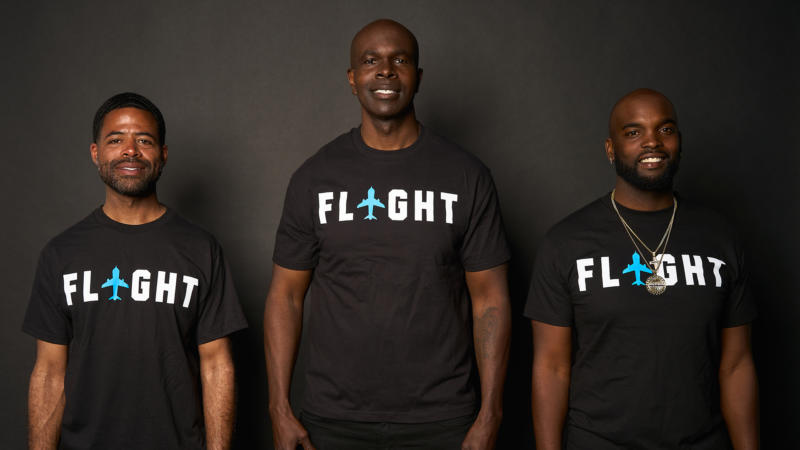
For many Black-owned and family-owned businesses, their missions are often rooted in stories of community, unity and perseverance through life’s obstacles. In the case of Flight — the newest and only state licensed cannabis dispensary in San Francisco’s Park Merced — cousins Eric Grayson, Keena Middleton, and Charles Toney II all teamed up to launch a business that could set an example for their community and honor their family all at once. “It means a lot because we’re from here, but it means a lot more because it took so much effort to even get to this point,” Middleton tells AfroTech. “[Flight] is not your regular business by any means, you can open up a million [other] things before you open up one of these [dispensaries]. It has a lot to do with being Black as well, but to be able to do it with family members means the world.” The dispensary’s name itself is a tribute to Grayson’s mother, Clara Grayson, who passed away from cancer after the family pooled money together to fly...
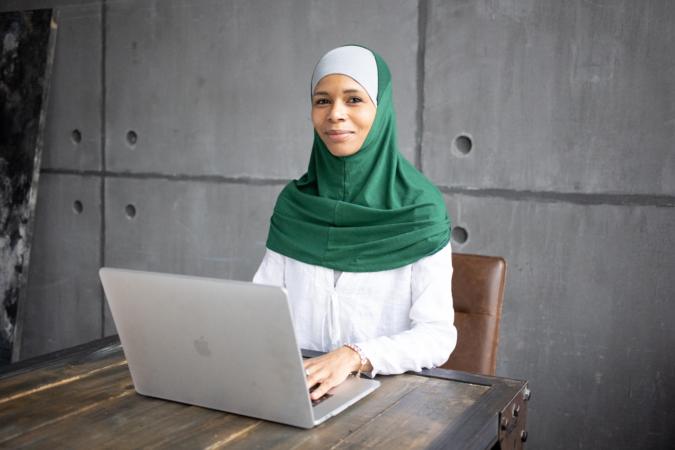
San Francisco has a goal to reinvest its multi-million dollar police budgets into Black-owned businesses in its community. According to an announcement from San Francisco Mayor London N. Breed, she shared that the city would be awarding $3.75 million from the Office of Economic and Workforce Development (OEWD) and the San Francisco Human Rights Commission (HRC) to its small Black business community as a means to divert the $120 million funding from law enforcement. The new move is part of the city’s Dream Keeper Initiative, which aims to mitigate the economic hardships in San Francisco’s Black community and help support rebuilding its economic power. “Across this country, and in our City, we’ve seen how the Black community’s economic growth and prosperity has historically been disrupted and marginalized,” Mayor Breed said in her statement. “This funding is part [of[] our efforts to undo the harm of generations of disinvestment and economic inequities. As we work to recover and make...

Marijuana arrests for Black youth in America have a history of threatening to derail their futures. San Francisco native and professional boxer Karim Mayfield faced this same fate at 18-years-old, but now he’s turning that negative into a positive by opening his own cannabis dispensary in his hometown. In addition to being a cannabis dispensary owner, Mayfield is also the owner of SoulChamp — a boxing gym dedicated to offering youth the kind of mentorship that helped turn his own life around as a teen. Mayfield now joins the new generation of Black public figures becoming leaders in the cannabis space, as well as the professional athletes who are incorporating cannabis into their training and wellness regimens. According to a press release, Mayfield earned the opportunity to own a cannabis dispensary through San Francisco’s Cannabis Equity Program, which aims to create prosperity and secure ownership in the cannabis industry for those severely impacted by the War on Drugs. “As a San...
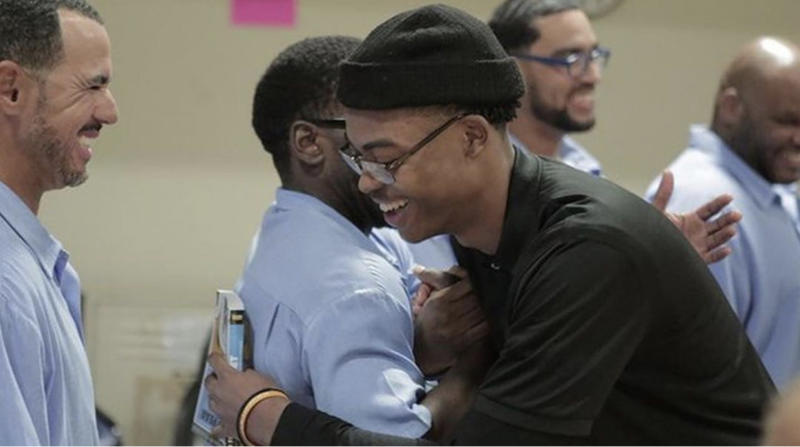
Two very different worlds have collided and you’ll never believe how! California’s Soledad State Prison and an elite private school, Palma School, have joined forces — through their love for reading. According to CNN, the prep school for boys in Salina, California created a partnership with the Correctional Training Facility (CTF) at the prison which includes a reading group for both the high school students and the inmates. This has allowed the two groups to merge not only to share their love for reading but to develop and learn a greater understanding of each other. Now, the reading group has soared to new heights. After a Palma student was unable to pay the $1,200 monthly tuition after having not one, but two parents suffer a medical emergency, the inmates stepped up to help. “I didn’t believe it at first,” shared Jim Michelleti, the English and Theology teacher behind the reading program. “They said, ‘We value you guys coming in. We’d like to do something for your school… can...
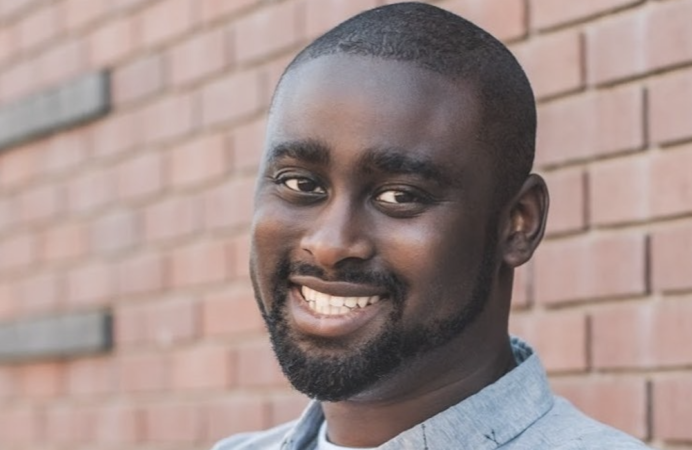
Tired of yelling for a representative when chatting with bots when you call in for customer service at your favorite companies? This CEO is working to change that. Deon Nicholas, CEO of Forethought, says that his three-year-old startup is built differently. For his company, he uses artificial intelligence software rather than automated decision trees. “We know you’ve been burned,” said Nicholas. “But that wasn’t artificial intelligence. It was a lot more artificial than it was intelligent.” The San Fransisco-based company offers a tool called Agatha that works with service agents to help them triage support tickets and resolve them on its own through the use of an AI software that gets smarter at anticipating solutions over time and using natural language processing. So far, the company reports that they have resolved more than 500,000 claims automatically and investors have noticed, per Forbes. In an announcement on Wednesday (Nov. 25), Forethought shared that it’s raised $17...
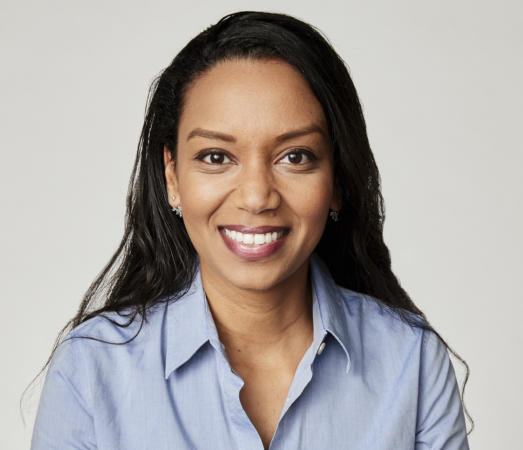
There are few things harder than medical school. After years of being pushed mentally, physically, and emotionally, many med school graduates go on to complete residencies across the world to build out their skills. For Incredible Health Co-Founder Iman Abuzeid, completing her degree meant merging into entrepreneurship. Abuzeid grew up in a family of doctors, but chose her own path and began consulting at Booz Allen Hamilton where she designed collaborations between New York City hospitals and pharmaceutical companies. She continued to apply her medical expertise at McKinsey & Company before becoming the director of product management at AliveCor, Inc., a mobile EKG solution company. “I felt like I could make a bigger difference without pursuing residency,” Abuzeid said. “I wanted to have a broader impact.” Abuzeid never strayed far from the medical field and said that she’s been able to apply her medical degree in ways that she did not think were possible. In her consultancy days,...
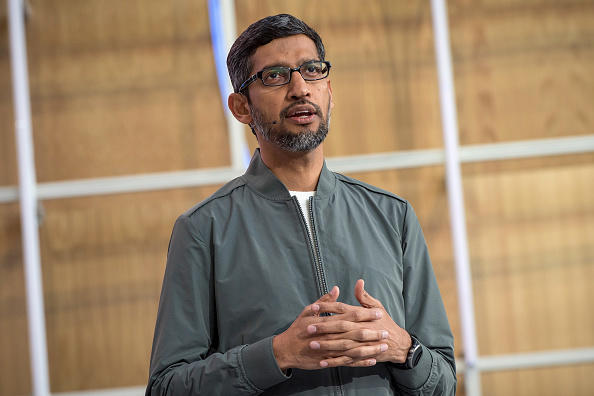
In San Francisco, homelessness is a highly visible issue. The city’s initial estimates from its 2019 point-in-time count suggest that there’s been an increase of 15-20 percent over the 2017 count. Many within the city feel that tech companies who made Silicon Valley their home need to take responsibility for contributing to the issue. On Tuesday, Google’s CEO Sundar Pichai announced that the company will invest $1 billion in housing across the Bay Area. Pichai shared that over the next ten years, Google will repurpose at least $750 million of its existing office space, adding: “This will enable us to support the development of at least 15,000 new homes at all income levels in the Bay Area, including housing options for middle and low-income families. We hope this plays a role in addressing the chronic shortage of affordable housing options for long-time middle and low income residents.” In addition, Google will put $250 million toward “incentives” for other developers to build 5,000...
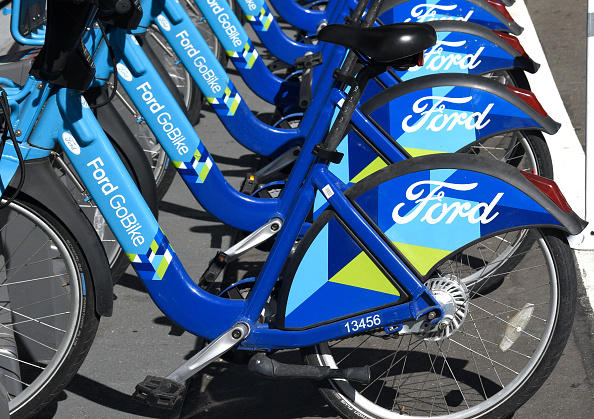
The bikeshare industry has grown immensely in the United States. Now, many cities are beginning to explore new dockless bike options — but for San Francisco, that may pose a problem. Recently, Lyft sued San Francisco over claims that the city was violating a ten-year contract that gave the company exclusive rights to operate bikeshare programs, TechCrunch reported . However, San Francisco says that the contract doesn’t apply to dockless programs. Lyft is the owner of Motivate, which operates the Ford Gobike program in San Francisco. The only other company that operates a bikeshare program in the city is Uber’s JUMP, which offers dockless bikes. According to TechCrunch, Lyft says that was supposed to be an exemption since Motivate wasn’t able to deploy its own dockless bikes. JUMP’s pilot ends in July, so Lyft’s issues stem from San Francisco seeking additional operators for dockless bikes. “We are eager to continue investing in the regional bikeshare system with the MTC and San...

On Tuesday, San Francisco officially made history as the first city in the United States to ban government use of facial recognition technology. In a reported 8-to-1 vote , the city’s Board of Supervisors passed the Stop Secret Surveillance Ordinance. The new law restricts all city departments from using facial recognition technology and requires board approval to purchase any new surveillance devices. The Stop Secret Surveillance Ordinance expressed concerns around facial recognition’s potential to exacerbate pre-existing social issues, such as anti-Blackness and over-policing of vulnerable communities. The proposal itself noted that the “propensity for facial recognition technology to endanger civil rights and civil liberties substantially outweighs its purposed benefits”, going on to specifically cite concerns around continuous government monitoring. The coalition supporting the ordinance — made up of civil rights, racial justice, LGBTQ rights, homeless, and immigrants’ rights...
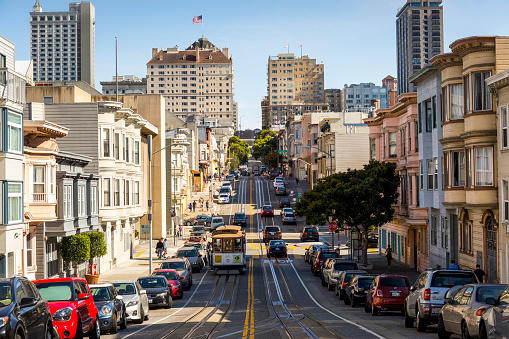
Over the past few months, San Francisco has slowly inched towards approving a new ordinance that would put the city on the map. The city has been reviewing a Surveillance Ordinance which would ban all city departments from using facial recognition technology, or they’d need board approval to purchase new surveillance devices. On Monday, the rules committee of the San Francisco Board of Supervisors unanimously passed the proposal . Now, the ordinance only has one more round of votes to go through. If passed, it would make San Francisco the first city in the United States to ban facial recognition technology. Mattle Cagle with the American Civil Liberties Union (ACLU) of Northern California told KPIX: “Facial recognition allows the government to know where we walk, what stores we visit, even if we’ve gone to a protest or a place of worship. What’s great about it is that it makes sure that if law enforcement wants to deploy a new technology – something that may not be ready for prime...
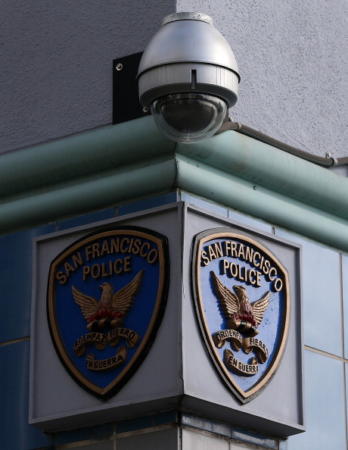
The use of facial recognition technology by law enforcement continues to be a concern for civil rights and privacy advocates. Many point out its potential to worsen pre-existing surveillance of marginalized communities. With that in mind, San Francisco is quickly on its way to becoming the first city to ban facial recognition surveillance. Back in February , San Francisco’s lawmakers proposed the Stop Secret Surveillance Ordinance that would restrict all city departments from using facial recognition tech. In addition, they’d need board approval to purchase any new surveillance devices. Although the proposal has the support of groups like the American Civil Liberties Union and the Electronic Frontier Foundation, one group is notably pushing back: police. The San Francisco Police Officers Association (SFPOA) has not only opposed the bill but Supervisor Aaron Peskin — who introduced the legislation — said his office has been bombarded with identical emails originating from the Police...
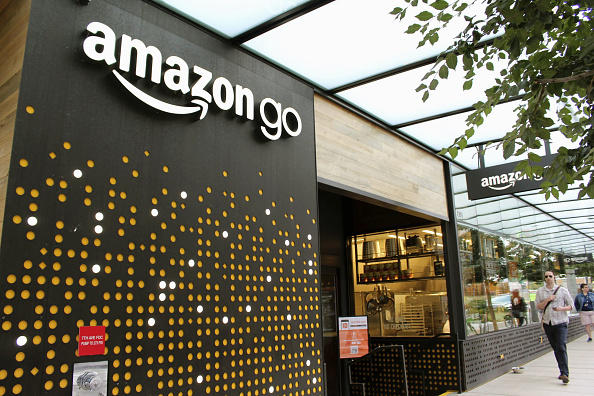
Bans on cashless stores are popping up across the country as officials begin to weigh how they exclude certain groups of people from shopping at certain stores. Now, San Francisco may be joining a host of other cities in passing similar legislation, but this time it could include Amazon Go Stores. Last month, San Francisco’s District Five Supervisor Vallie Brown introduced a bill requiring “brick-and-mortar” businesses to accept cash. The original bill excluded Amazon Go stores because there aren’t any employees present to take cash. However, Brown expanded the proposal to include Amazon’s stores on Tuesday. This is a bold move because Amazon isn’t the most graceful when it comes to the government trying to regulate its business practices. This was apparent when Seattle tried to propose a tax on big businesses to help the homeless. This was also seen in Philadelphia, where a public fight between Amazon and city officials occurred after a bill was approved to ban stores from not...
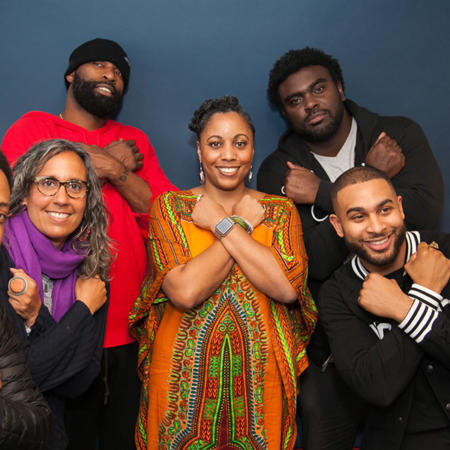
In celebration of Black entrepreneurship, the Coalition of Black Excellence is hosting its inaugural summit to nurture relationships between business owners and investors. The CBE Summit will include panel discussions, workshops, and other events for businesses looking to expand and build networks across the country. “ Our goal is to continue to be a space where individuals and organizations dedicated to elevating the black community can come together, give back, amplify our collective impact, and celebrate excellence in the Black community,” CBE Founder and CEO Angela Johnson said. CBE is a non-profit that launched in 2017 after a collective of organizers began planning CBE Week to help support and elevate Black businesses in the San Francisco Bay area. The first CBE was hosted in September 2018, and the organization has since expanded to other events like its summits and a gala with the United Negro College Fund. The speaker sessions for the CBE Summit are categorized into four...